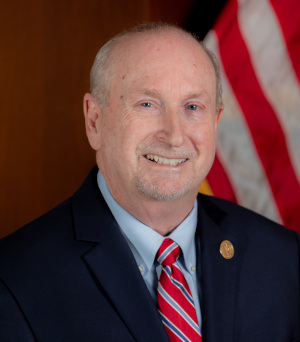The Affton, Lindbergh and Mehlville school districts were recently three of 20 districts statewide to present a proposal to the Missouri State Board of Education that would do away with MAP testing in favor of a new accountability system to measure student growth.
Representatives from the 20 districts made a presentation to the state board June 6, requesting a three-year waiver from MAP testing to pilot a growth-based student assessment. The school districts are part of the Success-Ready Students Network Demonstration Project – the SRSN is a group of educators and stakeholders that “connects the … public school community” to personalize learning for students so they are “high school, college, career and workplace ready,” the group’s website stated.
The demonstration project includes the waiver request under the Missouri Revised Statutes Chapter 161.214 and is based on the state’s definition for competency-based learning. Missouri Gov. Mike Parson signed legislation approved by the state legislature in spring 2022 that gives school districts the ability to apply for so-called innovation waivers.
According to a press release from SRSN, key components of the new measurement system would include:
• Measuring student growth multiple times throughout the school year
• Provide immediate, timely feedback for students, teachers and parents
• Ensure students are aware of where they are and engaged in setting future goals
• Active student learning based on evidence of mastery, “not seat time”
• Student engagement in real-world learning experience that support high school, higher education and career readiness
The state Board of Education will vote in August on whether or not to grant the waiver request. The U.S. Department of Education will also have to grant approval since the MAP test is a federal mandate. If approved, the demonstration project will start this fall and continue through the 2025-2026 school year.
Mehlville BOE approves SRSN resolution
The Mehlville Board of Education voted 5-1 at its May 18 meeting to approve a resolution to participate in the demonstration project.
Director Scott Huegerich, who was elected to the board in 2022, voted against the resolution, pointing out that the district’s ACT scores have experienced a five-year decline.
“In principal I am not against competency-based education … but I suppose there’s a time and place for everything and I don’t think this is the time or place where we should be considering this resolution,” Huegerich said. “Three of our neighboring districts outperform on the MAP testing side. These districts are Lindbergh, Fox and Bayless. The MAP testing measure I’m referencing is the percentage of students that are testing proficient or advanced.”
“The only way we are going to turn this around is if we have a plan, if we focus on it and if we apply human capital to this plan,” Huegerich added.
Huegerich emphasized that the SRSN demonstration project should not be the priority.
“I believe that our community would like for us to turn this around. The only way we are going to turn it around is we are going to figure out what our priorities are and then we’re going to assign human capital and resource to this plan,” Huegerich said.
Board President Peggy Hassler countered that she believed the waiver actually addressed the “cyclical problem” of DESE and “the moving target of the MAP test” and its constant changes.
“This is to address that problem, to keep the progress of our children moving forward without putting that MAP test number — that by the way changes every two years … because DESE says so,” Hassler said. “You’re obsessing over the MAP scores — I agree with you, I want to see higher test scores also. I believe this resolution can push us to a higher test score because it will be … a consistent learning cycle for our children.”
Director Jean Pretto said that during her time as an educator, time was wasted “teaching to the test” when students could have been learning something to prepare for the next stages of life.
“That’s our job, as educators, as parents. It’s our jobs to prepare our kids and our students for the next stage in their life,” Pretto said. “And they learn and learn and learn and they take a test that says they’re no good when in actuality they’ve learned a great deal during that time.”
Huegerich argued that focusing on test scores also “opened doors” for students.
“That to me, an ACT score, is actually really what we’re focusing in on … we have got a five-year trend downwards … that’s what I want us to focus on,” Huegerich said.
Director Jeff Wolman pointed out that Lindbergh, one of the districts that has had higher average test scores than Mehlville, was also participating in the SRSN.
“They seem to be along for the ride and … happy trying to go down this path,” Wolman said. “We are trying to find innovative learning … and this is a step.”
Gaines added that context around ACT scores was also important and scores could be raised if the district stopped paying for every student to take the test.
“That’s how you do … because that’s what everyone else in the state has done. They stopped testing every kid,” Gaines said. “Have our ACT numbers been lagging? Absolutely. But if you want to compare us to the state, you have to look at the context. … When the state funding went away (in 2018) … they stopped testing every student.”



















